From farm to processor, meet the people ensuring quality along the way Pg






From farm to processor, meet the people ensuring quality along the way Pg





Honouring Ontario’s top five producers
PEOPLE
Committed to improving the well-being of our customers, employees and communities.

PLANET
Committed to minimizing the impact of dairy production on the environment and build a deeper connection to our planet.

Committed to advancing the dairy industry through collaborative leadership.
PUBLISHED BY DAIRY FARMERS OF ONTARIO
6780 Campobello Road
Mississauga, ON L5N 2L8
EDITOR
Theresa Rogers theresa.rogers@milk.org
ADVERTISING
Pat Logan pat.logan@milk.org
519-788-1559
GRAPHIC DESIGN
Katrina Teimo
CONTRIBUTORS
Tim May
Chris McCullough
Jeanine Moyer
Robert Price
Guy Parsons
Canada Post Publications Mail Sales Product Agreement No.40063866.
Return postage guaranteed. Circulation: 8,000. ISSN 0030-3038. Printed in Canada.
SUBSCRIPTIONS
For subscription changes or to unsubscribe, contact:
MILK PRODUCER
6780 Campobello Road
Mississauga, ON L5N 2L8
Phone: (905) 821-8970
Fax: (905) 821-3160

Email: milkproducer@milk.org
Opinions expressed herein are those of the author and/or editor and do not necessarily reflect the opinion or policies of Dairy Farmers of Ontario. Publication of advertisements does not constitute endorsement or approval by Milk Producer or Dairy Farmers of Ontario of products or services advertised.
Milk Producer welcomes letters to the editor about magazine content.
WEBSITES & SOCIAL MEDIA
www.milkproducer.ca
www.milk.org
Facebook: /OntarioDairy
Twitter: @OntarioDairy
Instagram: @OntarioDairy
LinkedIn: dairy-farmers-of-ontario
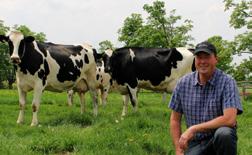

Meet the top five Ontario producers honoured for exceptional milk quality and their commitment to achieving consistent high-quality milk. All received Gold Quality Certificates for milk shipped in 2021.

36 World Dairy – Croatia

THOUGH DOMESTIC and global supply chain challenges persisted throughout the year, Ontario’s dairy farmers worked with confidence and integrity to ensure quality, fresh, local milk was always in stable supply. Consumers relied on the strength and resilience of the Canadian dairy system and were not disappointed.
“As we continued to emerge from the global pandemic, we gave a lot of time and attention to pricing, the cost of production and the rising cost of almost everything,” said Murray Sherk, Board Chair, Dairy Farmers of Ontario (DFO). “We are fortunate to have a predictable system, even if there are challenges to managing it,” he added.
At DFO, our focus remained squarely set on supporting a dynamic, profitable and growing dairy sector through balancing milk supply with fluctuating consumer demand during a challenging economic recovery. From the farm where Field Services were focused on delivering the provincial raw milk quality program to the table where our marketing efforts were dedicated to increasing milk consumption and making Ontario dairy an inspired food choice, the DFO team was dedicated to producer-focused outcomes.
“An ambitious growth target was set and the organization put great effort toward meeting it, moving the needle forward for Ontario producers,” says Cheryl Smith, CEO, DFO. “Our 2023 plan is agile enough to navigate changing market dynamics and take advantage of opportunities. We continue to look for programs and industry collaborations that support growth in Ontario, elevate our brand and influence and strengthen our Canadian dairy system.”
What has never been more obvious is to grow and thrive, our industry needs investment for processing ingredients. The demand for butterfat remains strong, but structural surplus will remain burdensome if processing capacity does not materialize. DFO is focused on this and, while it will take time, collaboration and unique problemsolving, we are strengthening relationships across the country and are optimistic producers, processors and governments will support this goal.
“Our Canadian dairy system is what gives us the strength and sense of purpose to deal with challenges and opportunities — for that we should all be grateful,” said Sherk.


“Our 2023 plan is agile enough to navigate changing market dynamics and take advantage of opportunities. We continue to look for programs and industry collaborations that support growth in Ontario, elevate our brand and influence and strengthen our Canadian dairy system.”
—Cheryl Smith Chief Executive Officer
“We are fortunate to have a predictable system, even if there are challenges to managing it. Our Canadian dairy system is what gives us the strength and sense of purpose to deal with challenges and opportunities — for that we should all be grateful.”
—Murray Sherk Board Chair
MARK HAMEL, VICE CHAIR

Region 11
Bruce and Grey
$2,756,585,894 farmgate value of milk sales
Mark Hamel was first elected to the Board in 2018 and is a graduate of the Advanced Agriculture Leadership Program - Class 8.

$7.7 billion GDP contribution by the Ontario dairy sector 100% of eligible Ontario producers are registered under proAction®, the national quality assurance program
3,092,313,588 L
litres of fresh milk shipped
An active industry representative for nearly 20 years, Mark was previously a Director and Past Chair of Gay Lea Foods and the Ontario Co-operative Association, a group focused on helping co-operatives and credit unions contribute to sustainable community growth and development.
99.7% of quota requirements were met by P5 dairy farmers, right-sizing supply with market demands despite continued supply change fluctuations
81 plants received milk from Ontario dairy producers
3,273 dairy farms produced milk in Ontario
Mark is Chair of DFO’s Audit Committee and is a Director on the Board of Dairy Farmers of Canada.
Mark and his wife Cathy are partners with their son Matt (fourth generation) and daughter-in-law Larissa, operating Harmony Holsteins Limited west of Elmwood, Ontario. Together, they milk 150 purebred Holsteins and farm 900 acres.
2,377 initial Grade A inspections were conducted in 2021-22
18.1% of Ontario producers received gold-level Raw Milk Quality certificates, a YOY increase of 1.6%
110 producers have entered the dairy industry through NEQAP since March 2010
11 grants awarded to Start-Up/Scale-Up participants
1,364,910 litres of milk donated by local dairy farmers to Ontario food banks
19 on-farm processors in Ontario
ADAM PETHERICK, 2ND VICE CHAIR
Region 4
Hastings, Lennox & Addington, Northumberland, and Prince Edward
Adam Petherick was first elected to the Board in 2020 and has a Bachelor of Science in Agriculture from the University of Guelph.
He is the chair of the Northumberland County Holstein Club and is previously a Board Member of the Campbellford Seymour Agricultural Society.
10,000+
10,000+ farmers and their families are supported by dairy farming in Ontario
farmers and their families are supported by dairy farming in Ontario
Adam is a seventh-generation dairy farmer at Almerson Farms Ltd. and manages the business with his wife Amy and his parents, Evan and Marilyn. They milk 75 Holsteins, and crop 400 acres of scenic land in northern Northumberland County.



As dairy producers, we take milk quality seriously. High-quality milk is a reflection of our work and our livestock, and it impacts the end product for the consumer. Producing high-quality milk means on-farm practices meet all quality specifications and regulations.
Ontario maintains high milk quality by enforcing standards at the farm level across the province. The national proAction program helps producers achieve and maintain exceptional quality standards. For example, it provides requirements for monitoring the cleanliness of milking equipment and ensures wash systems are functioning properly, and requires diligent record keeping. These things, together with raw milk testing requirements and animal welfare standards required by Ontario’s own Milk Act, are the foundation for milk quality in Ontario.


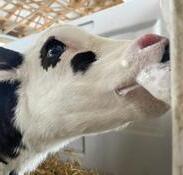
All of these steps ensure food safety, long shelf-life and great taste. We know the trust in our products is paramount for our processor customers and consumers, and with this in mind, quality is always a high priority for the DFO board and staff. A dedicated team working under the Director of Regulatory Compliance ensures all milk in the province meets our high quality standards and the regulations set out above. In addition, the Quality Assurance Committee, of which I am a member, is comprised of DFO staff and four other board members. Its mandate is to monitor and make recommendations for the improvement of the quality and safety of the raw milk supply and sustainability of milk practices in Ontario.
Our producers do incredible work across the province every day in support of producing milk that meets some of the highest quality standards in the world, and every year, Ontario producers are recognized for these efforts. “While every licensed producer in Ontario must meet stringent
Steve Runnallsquality standards, last year 45 per cent of our producers received certificates for exceptional quality.”
This year, at the first-ever DFO Recognition Dinner, the DFO board honoured the five Ontario dairy producers with the best overall quality scores. Presenting these awards in front of an audience of producers, elected officials and industry representatives was – and will be – an important part of publicly acknowledging the best of the best. You can read all about this year’s winners and the inaugural DFO Recognition Dinner beginning on page 10.
Congratulations to these producers. May their success serve as inspiration to all producers striving for the highest quality milk possible and secure public trust in the work we all do.
DFO, under an agreement with the Ontario Ministry of Agriculture, Food and Rural Affairs (OMAFRA), is responsible for administering provincial Regulation 761 pertaining to farm premises, raw milk quality testing, trucktank inspections, and BTMG certification, recertification and monitoring.
The mark of a quality farm producing quality milk in Ontario is a Grade A certification. Under the Raw Milk Quality Program and Regulation 761 under the Milk Act, the Grade A program sets the bar for the production of safe, quality milk. In addition, all eligible Ontario producers are also registered under proAction, the national quality assurance program administered by Dairy Farmers of Canada.
Ontario Ministry of Agriculture, Food and Rural Affairs
All raw milk in Ontario is graded by a Bulk Tank Milk Grader onfarm before being transferred to a truck-tank and transported to a processor. BTMGs are certified and responsible for:
• Grading milk by sight and smell
• Sampling – most sent to the University of Guelph for analysis
• Measuring the volume and temperature of milk in farm bulk tanks
• Transporting raw milk
DFO administers the Raw Milk Quality Program through on-farm inspections. Appointed Field Service Representatives (FSRs) conduct rigorous inspections at least once every two years, evaluating the status of each farm and working proactively with farmers to achieve and maintain continued Grade A compliance with regulatory requirements.
Dairy Farmers of Ontario Bulk Tank Milk Graders Field Services Reps
Inspection reports evaluate every aspect of meeting Grade A requirements. Farm premises and surroundings, and milking and cooling equipment must be clean and in a state of good repair. In addition, animals must be clean and receive appropriate care. Only milk from healthy animals is sold.
Producing high-quality milk is a badge of honour for Ontario dairy producers. Every day, farmers follow robust and mandatory animal care and production requirements to deliver safe, quality milk for consumers. Ontario dairy farmers are guided by regulations, achieving some of highest standards for milk quality worldwide.
655,000 BULK TANK SAMPLES PER YEAR
FSRs work with Ontario dairy producers to achieve and maintain Grade A standards.
13
FSRS ACROSS ONTARIO
109
EACH FARM INSPECTED AT LEAST ONCE EVERY
2 years
REQUIREMENTS FOR GRADE A INSPECTIONS AND CERTIFICATION
2,377 TRUCK LOAD SAMPLES – MORE THAN
100,000 PER YEAR
INITIAL GRADE A INSPECTIONS CONDUCTED IN THE LAST FISCAL YEAR

RAW MILK QUALITY is foundational to milk production in Ontario and as processor and customer expectations change, Ontario producers change with them, advancing their practices to ensure they are always able to produce milk that meets the highest quality standards. Both producers and DFO are dedicated to supplying milk that meets stringent standards for somatic cell count (SCC), bacteria, freezing point, and inhibitors.
I’ve spent the better part of the last 20 years on the Quality Assurance team at DFO and have worked with producers across the province on ways to improve their milk quality and farm operations to support the high standards we have.
DFO has always taken a multi-faceted approach to milk quality that involves a combination of programs, policies, regulations, and staff support. Field staff understand that myriad factors affect milk quality and as such, it is necessary to look at it in multiple ways.
Dairy Farmers of Canada’s proAction program addresses milk quality using a quality assurance program based on Hazard Analysis Critical Control Point (HACCP). Ontario’s Raw Milk Quality Program, under Regulation 761, The Milk Act, sets provincial standards and gives DFO the authority to enforce quality standards. This is done through milk testing and an associated penalty program. The regulation also delegates the authority to conduct farm inspections through the Grade A program to DFO. Inspections ensure that milk is produced from farms that meet Grade A standards not only for milking and cooling equipment but also for production facility and animal care standards.
DFO’s Board of Directors takes a proactive approach to quality and has increased testing and penalty programs over time. At these junctures, Ontario producers have always stepped up and demonstrated their willingness to adapt, and their commitment to quality. In 2022, Ontario producers maintained a provincial average of less than 200,000 SCC for each month of the year, well below the established acceptable limits.
Field staff support is also an important part of Ontario’s approach to milk quality. DFO’s team of Field Services Representatives (FSRs) possess strong technical and industry knowledge and are able to assist producers with troubleshooting and preventing raw milk quality issues before they happen. Recently, DFO reaffirmed its commitment to milk quality by having FSRs focus on quality investigations. They will now assist producers in determining the cause of any quality issue on-farm and advise them how best to address it. This support service is available to all producers as both a preventative and problem-solving tool.
Ontario dairy producers take pride in supplying our Canadian dairy system with milk that meets the highest quality standards. They understand that milk quality is not an end point but rather an ongoing process with a goal of constant improvement and our system is rooted in this.
Blending the art and science of young animal nutrition to bring you premium products with innovative ingredients
Our team of Young Animal Specialists can assist you on your farm with quality products, custom feeding plans and troubleshooting
The future of your herd deserves the best. Contact us today to learn how we are more than milk replacer
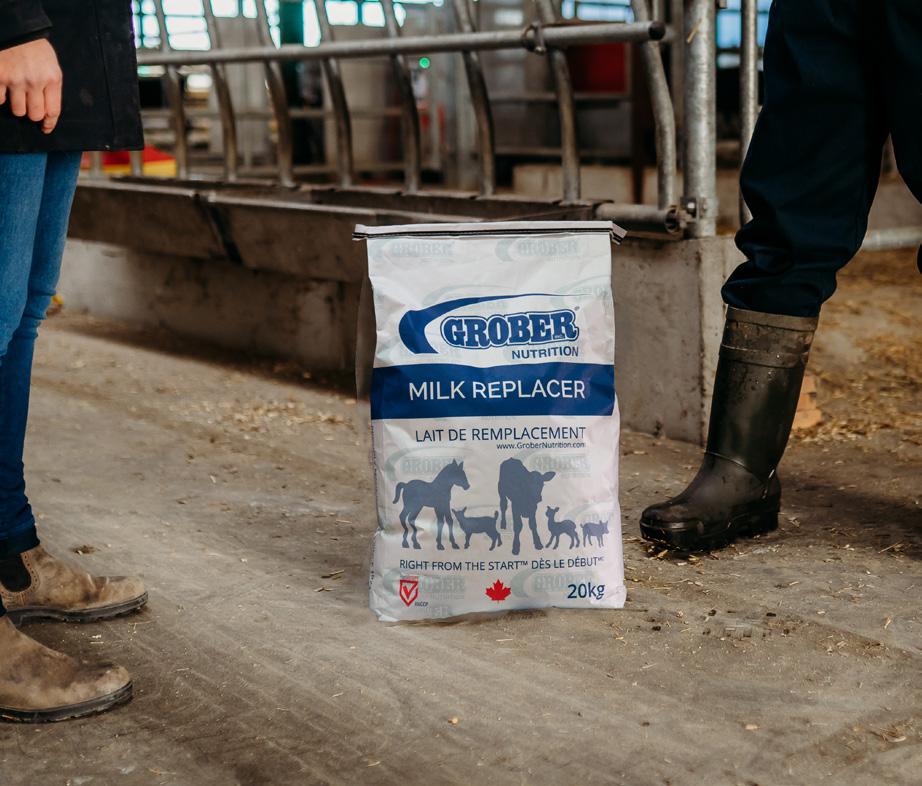
DFO’s former General Manager will be inducted in June
was instrumental in implementing the Raw Milk Quality Program we have today.”
Albert Fledderus, DFO board member representing Brant, Haldimand, Halton, Niagara, Norfolk and Wentworth
PETER GOULD, FORMER GENERAL MANAGER, DAIRY FARMERS OF ONTARIO, will be inducted into the Ontario Agricultural Hall of Fame in June.

A dedicated advocate for the industry and for supply management, Gould’s contributions to the Ontario and Canadian dairy industry have helped shaped the sector into what it is today.

“He was a true leader,” says Albert Fledderus, DFO board member representing Brant, Haldimand, Halton, Niagara, Norfolk and Wentworth, on behalf of the DFO board which nominated Gould.
During his 36-year career with the Ontario Milk Marketing Board (now DFO), Gould’s name became synonymous with ensuring high standards for milk quality and food safety, said a press release from the Ontario Agricultural Hall of Fame.
A visionary, Gould recognized the dairy industry’s need to continue to evolve to remain relevant. “He was instrumental in implementing the Raw Milk Quality Program we have today,” Fledderus says. Taking responsibility for the administration and enforcement of Ontario raw milk quality regulations, Gould also helped establish a single quota system.
A strong supporter of supply management, he played an active role in numerous international trade negotiations and was also a leader in raising funds to build the dairy research barn at the University of Guelph.
“Peter always looked out for the interests of the industry first,” says Fledderus. “He knew what the industry needed and he wasn’t scared to do the right thing.”
The induction ceremony will take place June 11, 2023, at the GrandWay Events Centre in Elora, ON.
“He

Raise your milking IQ with the revolutionary IQ Milking Unit. This unit’s smarter vacuum control automatically helps you produce higher quality milk by keeping contaminants out of the milk line. You won’t believe how clean your filters will be when you start using the IQ and you won’t believe how quiet your parlour will become with the reduction of vacuum noise!
BRITISH COLUMBIA
Mountain View Electric Ltd.
Enderby — 250 838-6455
Pacific Dairy Centre Ltd.
Chilliwack — 604 852-9020
ALBERTA
D. H. & P. Supplies & Equipement Ltd.
Lacombe County — 403 782-6473
Dairy Lane Systems
Leduc — 780 986-5600
Nobleford – 587-335-9742
Lethbridge Dairy Mart Ltd.
Lethbridge — 888 329-6202
SASKATCHEWAN
Dairy Lane Systems
Warman — 306 242-5850
Emerald Park — 306 721-6844
MANITOBA
Tytech
Grande Pointe — 204 770-4898
The IQ is sub-divided into four channels, and each channel collects the milk separately, guiding it to the central output. The fourchambered unit reduces teat-to-teat cross-contamination of bacteria, promoting optimum udder health.

ONTARIO
Conestogo Agri Systems Inc.
Drayton — 519 638.3022
1 800 461-3022
Dairy Lane Systems
Komoka — 519 666-1404
Lawrence’s Dairy Supply Inc.
Moose Creek — 613 538-2559
McCann Farm Automation Ltd.
Seeley’s Bay — 613 382-7411
Brockville — 613 926-2220
McLaren Systems
Cobden — 613 646-2062
Performance Dairy Centre Inc.
Embro — 519 423-9119
Wood’s Dairy Source
Keene — 705 295-3247
ATLANTIC PROVINCES
Atlantic Dairy Tech.
Charlottetown, PE — 902 368-1719
Sheehy Enterprises Ltd.
Shubenacadie, NS — 902 758-2002
Lower Queensbury, NB — 506-478-4878
Citilimits Farms Inc.
At the 2023 AGM in January, the DFO board recognized producer commitment to the production of highquality milk and industry leadership at the inaugural DFO Recognition Dinner.
Five Ontario dairy producers with the best quality scores were recognized for their outstanding commitment to quality, and the first-ever DFO Lifetime Achievement Award was presented to Glen McNeil (Heather Holme Holsteins, Goderich, ON).

Quality Award winners received Gold Quality Certificates for milk shipped in 2021:
Jordan Dietrich and Nicole Dietrich
Elliottdale Holsteins Ltd.
Andrew Elliott and Nicole Elliott
Ontowa Farms Inc.
Martin Family, Ralph Martin and Judy Martin
Slits Dairy Farms Ltd.
Pedro Slits and Jolanda Slits
Zethill Farms Ltd.
Russell Zettler
““Ontario dairy producers meet some of the most stringent milk quality requirements in the world and these Quality Award recipients have demonstrated the passion and commitment it takes to be the best of the best. It’s a true reflection of what we do to support our Canadian dairy system. I commend these producers for their leadership.”
– Murray Sherk, Chair, Dairy Farmers of Ontario“The Dietrichs pay close attention to details: clean cows, strict udder prep, clean equipment inside and out, and top-notch milk cooling. They are proactive in preventative maintenance and if something is going wrong, they fix it immediately. They constantly strive for continuous improvement. Milk quality is first and foremost on their minds. It is a pleasure to work with them.” —Paul
Norris, FSR1. What steps do you take to ensure consistent, high-quality milk production on your farm?

We dry treat all animals and spray post dip twice daily; stall management includes straw on pasture mats, clean stalls regularly and spray lime weekly; follow consistent and clean milking procedures including pre and post dip, wearing gloves, and using one dry cloth towel per cow; careful selection of low SCC bulls; and we only feed calves saleable milk or milk replacer. It is important to work with people and companies who benefit our business and what we’re trying to achieve. Don’t hesitate to make changes when you don’t feel you’re getting value.
Farm Established
Citilimits Farms was established in 1980 by brothers Norbert and Robert Dietrich. Jordan became a partner in 2004 when the farm became incorporated. Jordan and Nicole acquired ownership of the business in August, 2021 and are seventh-generation farmers on their land. They reside on the farm with their three young children.
2. What is the most important factor that influences milk quality on-farm?
Everything! Management of all the little things impacts milk quality.
3. What is your message to consumers about the quality of Canadian milk?
As dairy farmers, we take pride in what we do, every single day. We strive to provide a quality product that we are proud to stand behind.
4. What does this award mean to you?
It is an honour to be recognized for the little things we do each day to provide a quality product to consumers.

1. What steps do you take to ensure consistent, highquality milk production on your farm?
When we milked 77 cows in the tie stall barn, cows were stalled on pasture mats and straw, and went outside for exercise and to eat at the bunk. We moved into a new, sand-bedded, free stall barn in November of 2019 and we continue to practice many of the same protocols. Dry cows also spend their dry period on sand bedding. We use mostly EastGen semen as we like the dairy qualities it brings to the herd. Milking equipment is maintained yearly and we continually monitor our practices and protocols with assistance from our veterinary team and nutritionist.

2. What is the most important factor that influences milk quality on-farm?
Recognizing that there are many factors that influence milk quality from bedding, constant quality feed, constant review of health protocols and practices. Quality milk starts from birth, raising healthy calves, breeding when ready, maximizing feed intake and supporting the cow throughout her milk cycle.
3. What does this award mean to you?
We were surprised and honoured to receive this award. We received it about a year after moving into our new barn and it has helped confirm that we made a great decision upgrading our facilities and that the time we spent researching and visiting similar farms was worthwhile.

“I have been visiting Elliotdale Holsteins for many years. In their old tie stall barn, they worked hard to ensure the highest quality milk as they do now in their new, parlour/free-stall barn. It is easy to see John, Yvonne, Andrew, and Nicole take great pride in their farm and their animals and are very deserving of this award.” —Emily McDonald, Manager Field Service and Raw Milk Quality Programs
4. What else do you want people to know about your farm?
We have helped with the “Good Neighbour Project” for 28 years. The project has rented a 24-acre field and grown a crop rotation of wheat, corn and soybeans. The income from the crop is sent to the Canadian Foodgrains Bank in Winnipeg, with the government matching the money we send, four to one. Money is used overseas to assist people who are less fortunate than us.
1. What steps do you take to ensure consistent, high-quality milk production on your farm?
It starts with clean, healthy, happy cows. After that, it comes down to the details like prestripping cows in the preparation for milking, dipping before and after milking, and clean housing and fixing problems with the milking system as soon as they appear.
2. What is the most important factor that influences milk quality on-farm?
The most important factor is consistency: we perform the same prep, same milking procedures, and clean housing all of the time to help drive quality milk production.

3. What is your message to consumers about the quality of Canadian milk?
Farmers work hard to produce a quality product and take pride in the job we do.
4. What does this award mean to you?
We are proud of this award and hope many more dairy farmers can reach this level of milk quality.

5. What else do you want people to know about your farm?
Once you manage to get your quality numbers to this level, it’s easier to maintain this degree of quality.
“The Martins are 100 per cent dedicated to the dairy industry and to the consumer, and they believe we must provide the highest quality milk possible to build the market; we owe it to the consumer and our processors. Their farm is always kept clean and tidy and preventative maintenance is a priority as is keeping the milking and cooling equipment in tip-top shape. Issues are fixed immediately and they often ask questions about how to improve. They are always looking to get better.” —Paul Norris, FSR
1. What steps do you take to ensure consistent, high-quality milk production on your farm?
We keep standard operating procedures handy and in easy-to-understand terms so they are clear to everyone working on the farm.
2. What is the most important factor that influences milk quality on-farm?
The most important factor influencing our milk quality is consistent teat prep. We closely follow milk flows and milking times and make minor changes accordingly.
3. What is your message to consumers about the quality of Canadian milk?
As proud Canadian dairy farmers, it’s important to us to show our consumers that big barns are not just there to house a lot of cows but to give cows the comfort and room they need to be able to achieve high-production potential and to produce high-quality milk.

4. What does this award mean to you?

This award is a recognition of the work we do but more importantly, a confirmation and validation that the barn we designed and built back in 2018 works well and exceeding our expectations.
“The Slits family strives for continuous improvement in all areas of their dairy operation. Milk quality from their newest venture, a modern parlour/freestall facility, has been exemplary since start up. This facility is very well managed in all aspects; the animals are well cared for, the entire farm, especially the milking equipment, is always in show-ready condition and there is great attention paid to even the smallest details. The level of care that goes into maintaining a facility to this standard clearly shows the pride the Slits family has for the industry.”
—Heather McFarlane, FSR“I have been visiting Zethill Farms for many years and have always been in awe of the care and commitment that both Russ and Joyce, as well as their son Joel, have put into maintaining excellent quality milk and an exceptional dairy facility. No matter when you visit this dairy facility, there nothing out of place, tasks are always done, animals are well cared for, and of course milking equipment is clean both inside and out. Even after five years in their new dairy barn, it looks like they just moved in. This family has overwhelming pride in doing the job the best that they can.”
—Betty-Anne Elliott, FSR1. What steps do you take to ensure consistent, high-quality milk production on your farm?
The biggest thing is the time spent on the stalls. We have a robot barn but we kept our routines from the old tie stall barn. The time we used to spend milking is now spent cleaning and focusing on cow care.
Location
Hanover, ON Bruce County
Breed of Cow Milked Holstein
Number of Milking Cows 50-55
Barn and Parlour Freestyle sand bedded with 1 Lely robot
Farm Established 1979 with new robot barn built in 2017

2. What is the most important factor that influences milk quality on-farm?
Aside from the time spent cleaning and on general cow care, the biggest factor is monitoring teat health. When we first started the robot, we had some teat issues and focused on getting that better with the right milk liner and milk settings for the robot and it’s been great ever since.
3. What does this award mean to you?
It’s nice to be recognized for all of the hard work we put in.

ONTARIO DAIRY FARMER AND WELL-KNOWN INDUSTRY
ADVOCATE GLEN MCNEIL was presented with DFO’s first Lifetime Achievement Award in January at the organization’s Annual General Meeting.
Nominated by Roger Boersen, DFO board member for Region 10 (Perth and Huron), the inaugural award recognizes and celebrates an individual’s lifelong commitment to the betterment of Ontario’s dairy industry, the dairy community and local endeavours.
To earn the new, prestigious title, the recipient must be a current or retired producer with more than 15 years in the industry, operate a successful farm business, and be acknowledged by his or her peers as a positive ambassador with deep industry knowledge and passion.
“Glen McNeil’s contributions to the dairy industry as a producer, mentor and advocate have been immense,” DFO Board chair

““I am very honoured and humbled to have been presented the Inaugural Lifetime Achievement Award at the DFO Recognition Dinner. I would like to express my heartfelt gratitude and thanks to DFO for this memorable recognition. I am indebted to Vanda and our family for the sacrifices they have made to enable me the opportunity to be involved in this great industry that we are all so passionate for.
—Glen McNeilMurray Sherk said. “He is kind and generous in giving back to dairy producers and his community, and the sector has benefitted from his commitment to quality, advocacy and goodwill. His is truly a lifetime of achievement, with much more to come, and DFO’s Board is proud to present this award to acknowledge that.”
McNeil has a rich family history in Huron county. He and his wife, Vanda, own and operate Heather Holme Holsteins, a thirdgeneration family dairy business, which has been awarded a three-time Master Breeder. They farm alongside their son, Curtis, and his wife, Cathy, and their children. McNeil’s parents started the farm in 1935 and he partnered with them in 1977. The farm is located just outside of Goderich, ON.

McNeil’s contributions to the dairy industry are numerous and he firmly believes in giving back to his community and the larger dairy industry at home and abroad. Some of his accomplishments include serving as national Holstein Canada board president in 2012 and serving on the Holstein Canada board for nine years. Prior to that, he was involved in the Huron County Holstein Club and Holstein Ontario. Glen has also served on the Huron County DPC from 2014-2022. More recently, McNeil was re-elected as the Huron County Warden (Head of County Council) for the 2023-24 term and has served as mayor of the Township of Ashfield-Colborne-Wawanosh since 2018.
Outside of council, McNeil and his family are heavily involved in the Huron County 4-H Club and he has been the guest announcer for the Lucknow 4-H Invitational Dairy show for many years. The family lends calves out to 4-H members so they can participate in the 4-H dairy club and the family has hosted countless tours and events. The McNeils believe in advocating and educating the public to increase knowledge about and appreciation for the industry.

Juanita Echeverry-Munera, PhD candidate in the Trouw Nutrition Ruminant Research Centre at the University of Guelph, is the recipient of the 2023 DFO Doctoral Scholarship of $105,000 over three years. Her research explores methods to raise dairy-beef calves to improve productivity, sustainability and economic return on Canadian farms.
The annual doctoral scholarship is awarded to an exceptional PhD student at the University of Guelph and helps young researchers lead innovative dairy research projects, developing strong relationships for future career success.

“I would like to thank Dairy Farmers of Ontario for selecting me as the DFO Doctoral Scholarship recipient. This award represents a significant opportunity in my academic career as it enables me to continue with my studies, and to be abroad (in Europe) performing a study which has the potential to produce new practical strategies for dairy and dairy-beef producers to ensure animal welfare, future performance, and profitability on Canadian farms.”
—Juanita Echeverry-MuneraSee us at the Canadian Dairy XPO, Hall 2 Booth 117PS, April 5-6, 2023


Truvitalyte is a scientifically formulated electrolyte powder with a validated blend of buffers, amino acids, and energy sources, that effectively support sodium and water absorption in dehydrated calves




AS DFO’S FRONT LINE when it comes to producer relations and all things affecting milk quality, Field Services Representatives (FSRs) are on farm every day to support producers while ensuring uncompromising commitment to the production of high-quality milk. Dairy Farmers of Ontario’s (DFO) FSRs are a mighty force across Ontario, providing resources, solutions and guidance to Ontario dairy farmers. Responsible for administering the Raw Milk Quality Program through on-farm inspections, FSRs conduct rigorous inspections on every dairy farm in the province, working proactively with farmers to achieve and maintain Grade A farm status. Whether they’re veterans or new additions to quality assurance in the dairy sector, each FSR brings extensive experience and purpose to their work. They’re a critical piece of the equation and the reason we say Ontario meets some of the highest quality standards in the world. Meet three of them who are making a difference.
ZONE L
Counties: Waterloo, Wellington, Oxford
Paul Norris says every aspect of his job supports the quality of Ontario milk.
Bringing more than 30 years of professional experience to his role as FSR, he is the primary contact for 305 Ontario dairy producers in Waterloo, Wellington and Oxford counties. Norris worked in an industry milk quality role for more than a decade before joining DFO’s FSR team 23 years ago.

While his role includes many technical responsibilities, like conducting Raw Milk Quality Program Grade A inspections and troubleshooting milk quality problems on the farm, much of his time is spent working alongside farmers, helping them take a practical, proactive approach to quality milk production. He attributes his focus on maintaining and improving milk quality to impactful mentors early in his career.
“There’s a significant level of trust built between a farmer and their FSR,” says Norris. “While the inspections are an important part of the job, I’m not just looking for problems, I’m looking for ways to improve production, animal care and the quality of milk on each farm.”
From answering questions about programs and policies, to troubleshooting concerns and providing another set of eyes or perspective for farmers, Norris supports the day-to-day production of milk. Through a hands-on approach and the backing of a team of fellow FSRs, he’s able to bring experiences gleaned from other farms across the province to farmers in his zone, helping them proactively address concerns before they arise.
Norris is also responsible for helping farmers meet and maintain their Grade A status. He calls himself a hands-on problem solver at heart and says his favourite thing to do is dismantle milking and cooling equipment to ensure cleanliness and proper functionality. And while he’s there, he’s also preemptively looking for any problems that could cause the farm to see high test counts or quality concerns.
“I’m also trying to prevent unnecessary stress to our farmers while helping them meet requirements.”
Norris says he feels fortunate to work as an FSR every day. “I couldn’t be prouder to work hand in hand with producers to grow our market and provide safe, quality milk to consumers.”
“While the inspections are an important part of the job, I’m not just looking for problems, I’m looking for ways to improve production, animal care and the quality of milk on each farm.”
—Paul Norris
Counties: Bruce, Huron
For Betty-Anne Elliott, the most gratifying part of her job is seeing Ontario dairy farmers succeed.
Working as an on-farm advisor for nearly 40 years, she has built lasting relationships with farmers throughout her zone.
“Relationships are a big part of my job. I aim to build trust and respect with every farm visit,” says Elliott, adding that while an important part of her FSR role is regulatory, ensuring farmers follow the Milk Act, maintain Grade A status, care for their animals, and produce quality milk, her job extends far beyond programs and policies. Her goal is to be the first call farmers make when they have a problem or want to share a win.
Now, working with the second generation of many farms in her region, Elliott says it’s an energizing experience contributing to the success of both the farm and farming families.
As an FSR, Elliott conducts unannounced farm visits to each dairy farm in her area every two years, and helping the farms achieve and maintain their Grade A status is always her goal. With a careful eye, she evaluates, watching for opportunities for farms to improve their quality and avoid unexpected issues. Most producers appreciate her proactive approach, third-party perspective and helpful ideas she shares.
Elliott is responsible for 276 farms and is most proud working alongside a farmer to solve a challenge or quality issue.
“I’m able to see unique solutions to challenges or ideas to improve efficiencies or animal care that most farmers don’t get a chance to see because I visit so many farms,” she explains. “I can
share these experiences and suggestions from farm to farm to help everyone improve.”
Another important part of Elliott’s role is support. She’s the first call when farmers need help understanding policies or programs, if they’re having a problem, or in times of crisis, like a barn fire.
“We’re all human and having a voice on the other end of the phone can go a long way to support individual farmers and our overall industry,” she says.
Through experience working as part of OMAFRA’s Raw Milk Quality Program and nearly 25 years in her FSR role, Elliott has seen a lot of changes to regulations and requirements and says part of every FSR’s job is to understand policies and regulations so they can explain how they impact Ontario farmers and why they are important.
“I like to think of myself as a champion for change, innovation and improvement on Ontario dairy farms,” says Elliott.
ZONE C
Counties: Algoma, Cochrane, East-Nipissing-Parry Sound, East Sudbury-West Nipissing, Manitoulin-West Sudbury, Rainy River, Temiskaming, and Thunder Bay
As a former dairy farmer, Jean-Guy Seguin brings hands-on experience to his FSR role.

Though he retired from dairy farming in 2006, Seguin draws on his experience daily when covering the largest field service zone in the province, with 104 dairy farms spread across northern Ontario.
And with eight years of service as a DFO board member and six years on the Dairy Farmers of Canada board, Seguin also brings a deep understanding of industry relations to his job.
Regular Grade A inspections are always performed in person but Seguin doesn’t hesitate to employ technology to further support producers spread over the vast geography of his region.
“I regularly have farmers take apart equipment to troubleshoot concerns during a live video call,” he says.
Seguin also works closely with other service providers for support when needed.
“I’m able to see unique solutions to challenges or ideas to improve efficiencies or animal care that most farmers don’t get a chance to see because I visit so many farms.”
—Betty-Anne Elliott
Betty-Anne Elliott
Under the Raw Milk Quality Program, every dairy farm in Ontario must meet Grade A inspection requirements. DFO’s field service representatives administer the program and, among other things, look at:

Animal care – animals must be cared for in accordance with the Code of Practice for the Care and Handling of Dairy Cattle. A Cattle Health and Veterinary Medicine Use Declaration, signed by the herd’s veterinarian and the producer, must be on file.
Biosecurity risks – contaminants which could affect animal health or milk quality must be kept separate from animals, equipment and areas, milkhouse entrance area, laneway and loading area.

Milk contact surfaces – all surfaces must be clean and in good repair.
Milk storage and cooling – bulk tank interior and exterior must be clean and in good repair. Milk must be cooled to 10 C or lower within one hour after milking and to between 1 and 4 C within two hours of the end of milking. Milk must be stored between 1 and 4 C.
Time-temperature recorder (TTR) – must be properly functioning and constantly monitoring milk temperature and milking equipment wash time and temperatures.
Udder contact surfaces – stalls, alleyways, barnyard, pasture, etc., must be clean.
Physical structures – animal housing, milking areas and milkhouse must be clean, tidy and maintained.
“We have a robust network of dairy industry representatives we all rely on for support,” says Seguin. “We’re all connected and are proud to work together to deliver quality milk.”
He begins every day reviewing milk test results and talking to farmers about a variety of topics including, “milk quality concerns, explaining DFO policies, and sharing general experiences to help a farmer overcome a challenge.”
A certified Bulk Tank Milk Grader (BTMG) himself, Seguin also supports the recertification and verification process for northern Ontario drivers. He delivers BTMG renewal certification exams,
renews grading skills every five years and conducts annual truck inspections. Between 12 and 20 BTMGs support northern Ontario.
Seguin says the opportunity learn is one of the best parts of his job. “While my role is to advise farmers on maintaining and improving milk quality and animal care, I enjoy learning from each experience, too. I also have the ability to share what we all learn together with fellow dairy farmers across the region.”
Sharing his knowledge and experience with new dairy farmers is also important to Seguin who enjoys working alongside New Entrant Quota Assistance Program participants.
“My FSR role is to share knowledge and experience and they welcome any advice offered,” he says. “It’s so enjoyable to share moments of success with farmers new to the dairy industry.”
“While my role is to advise farmers on maintaining and improving milk quality and animal care, I enjoy learning from each experience, too.”
—Jean-Guy Seguin
We’re FCC, the only lender 100% invested in Canadian agriculture and food, serving diverse people, projects and passions with financing and knowledge.
Let’s talk about what’s next for your operation.

You’re behind Canadian agriculture and we’re behind you
I SPEND A LOT OF TIME talking to consumers both in person and on social media, and I know support for Canadian dairy and Canadian farmers has never been stronger.
In a world where consumers must wade through an abundance of misinformation and fear marketing, it’s refreshing for them to find an industry that not only takes pride in its welfare and quality standards, but also offers proof of a meaningful commitment to its farmers, livestock and consumers.
I’m proud to be an Ontario dairy farmer and every time I talk to consumers about what it takes to produce high-quality milk, they are extremely grateful for our efforts. The work we put into our products puts their minds at ease because they know they are getting a quality product from well-cared-for animals.
Consumers support us, love us, need us, and are part of our team. We must nurture that relationship by continuing to listen to them and adapting to their needs. Our industry has some of the best milk quality and welfare standards in the world. With those quality and welfare standards formalized, it’s up to all of us to do our part in showcasing how we are not only meeting these standards, we’re exceeding them. If that means audits, inspections and paperwork, I don’t mind because I know that these checkpoints are making a difference in consumer confidence and dairy consumption.
Field services representatives and auditors are on our side. While none of us enjoy criticism, they too, are members of our team, intent on bringing unity and aligned standards to our diverse industry. They are there to educate, answer questions, and work with us to succeed. We have worked hard to get to where we are today and, as an industry, we have a lot to be proud of: consumption remains strong and the public is thankful for our commitment to them through our continuous efforts to improve. They know that we are listening. Because of our hard work, consumers trust us and trust is the foundation of any relationship, especially when it comes to people and food.
Tim May, or “Farmer Tim”, is a dairy farmer in Rockwood, ON. He holds a degree in Animal Science from the University of Guelph and is passionate about spreading positive messages about agriculture to his more than 150,000 followers.

As a renowned “agvocate”, Ontario producer Farmer Tim uses his prominent online presence to share positive messages about the dairy industry and quality
Ready to shift into high gear?
Like F1 racing, reproduction is driven by accuracy and performance


Herds with efficient reproductive programs benefit from having a large proportion of cows in the most productive phase of lactation, and improved health.1 Yet, pregnancy rates in many herds still perform under 20%.2 By shifting into high gear, we will get closer to reaching our common goal of achieving a 25%+ pregnancy rate. Achieve 25% + together Reproduction done accurately.
Vetoquinol invites you to join the Achieve 25% + together program
To register, contact your veterinarian
Participate by teaming up with your veterinarian and the best pit crew of the industry. Challenge begins April 1st, 2023
Win prizes with our friendly challenge
Registration period opens on January 9, 2023.
Ready to shift gears?
The Achieve 25% + pregnancy rate program is driven by the company that brought you the trusted brands Fertiline and Bioestrovet
www.vetoquinol.ca
EACH DAY, ABOUT 8.5 MILLION LITRES OF MILK are moved from Ontario dairy farms to plants for processing. That works out to about 3.1 billion litres a year.

The movement of milk is so precise and efficient that the hard work of keeping milk safe for consumption throughout this process often goes unnoticed. Consumers rarely think about how milk moves from the cow to the table, and they shouldn’t have to.
It’s a precision process; the product of highly specialized work conducted by highly trained professionals.

The process that maintains milk quality begins long before a Bulk Tank Milk Grader (BTMG) pulls up to a farm. Each driver must first apprentice to obtain a BTMG certificate, work for a milk transport company


recognized by the Dairy Farmers of Ontario (DFO), and pass a written exam. The certification process, as outlined in regulation 761 of the Milk Act, ensures drivers develop an expertise in ensuring milk quality. Drivers must recertify every five years.

“In Ontario, only a BTMG can pick up and transport milk,” says Joanna Yalcinkaya, Program Manager, Raw Milk Quality, Dairy Farmers of Ontario. “The drivers must be certified to ensure milk quality is never compromised. These aren’t widgets they’re transporting.”
The certification process trains drivers to test and grade milk to ensure quality of product. The testing is regular and rigorous.
Scott Wark, President of Wark Milk Transport and President of the Ontario Milk Transportation Association, says drivers are critical in ensuring the quick transit of quality milk.
“Without drivers, milk doesn’t leave the farm,” he says.
Before drivers pick up a load of milk, they inspect and grade the milk by looking at it, smelling it, and measuring its temperature. Drivers also take samples of the milk which Milk
occurs every other day for most farms
630 BTMG drivers in Ontario
285 daily deliveries
are tested for bacterial concentrations, and every load is tested for antibiotics. Contaminated loads, which are rare, are destroyed.
“In terms of overall quality of the milk getting to market, it is our job to ensure that milk that is off-grade doesn’t get put into tankers,” says Wark.
It’s simple: If the milk doesn’t pass the quality inspection, it doesn’t ship.
“Milk quality has to be preserved once it leaves the farm, so we need to ensure we start with the highest quality possible,” says Jeff Hyndman, Assistant Director, Raw Milk Quality and Quality Assurance Programs at DFO. “BTMGs are an important part of the quality control process.”
In Ontario, the tanker trucks which are used to transport milk, undergo continuous maintenance. At the end of each day, trucks are emptied, washed, rinsed, sanitized, and sealed for the next day. At the end of each week, the trucks are given an additional wash to make sure calcium doesn’t build up. The insulated tanks ensure the temperature of milk doesn’t drop more than one degree in 24 hours. But with same-day delivery of milk to processors for nearly all transports, milk usually arrives at the same temperature it left the farm.
Robert Nosek, Director of Logistics at DFO, coordinates the fleet of 226 trucks for the 104,000 milk pickups and deliveries across Ontario each year.
226 approved trucks 81 processors
In addition to transportation, the Logistics Team is also responsible for milk allocation, sample transportation, metering and calibration. Their role is critical to getting milk to processors in the most efficient way possible.
“Cows don’t stop producing milk, so our team is always on to make sure pick-ups are on track and that there’s somewhere for the milk to go,” says Nosek. “We are the connection between the farm and the plant, and we work collaboratively with our transporters so that consumers always have high-quality milk and dairy products available to them.”
This spring , we will gather b oth vir tually and in-person for Dairy Farmers of Canada (DFC)’s Annual Policy Conference as we dive into the consumer, economic, and public policy trends shaping the dairy industry and plot out our place in the safe and sustainable food system of the future.
We can celebrate several key successes in 2022 , from our net zero commitment to front-of-pack labelling reductions to CUSM A compensation. Yet our sector continues to face several headwinds. Inflationary and supply-chain pressures on production, market disruption from imports and plant-based alternatives, changing consumer behaviour, government trade and climate policies are just a few of the issues dairy farmers will have to contend with in 2023.
On December 20th, United States Trade Representative Katherine Tai announced that her government is requesting consultations with Canada regarding the manner in which our government allocates tariff-rate quotas (TRQ) under the CanadaU.S.-Mexico Agreement (CUSMA). The US has decided to go back to consultations (instead of seeking a panel dispute) and added to the list of the policies they view as inconsistent with CUSMA.
In response, the Hon. Mary Ng, Minister of International Trade, Export Promotion, Small Business and Economic Development issued a statement maintaining that Canada’s TRQ policies are consistent with the terms of the agreement, a view that DFC supports.
“We look forward to demonstrating how Canada is meeting its CUSMA obligations during the new consultations on allocations of dairy tariff rate quotas,” said Minister Ng. “As we have always done, and we will continue to do, we will stand up, work with, and defend our dairy farmers and workers.”
DFC is confident that the two countries can arrive at a resolution and will continue to work with the Canadian government to protect our dairy sector and farmers.
DFC will continue to work on the priorities identified by our board of directors, including marketing to the next generation of consumers and ensuring we are aligned with the government’s sustainability priorities.
As I enter my final term as DFC President, I know we have the steadfastness to face any challenges that may arise as the industry leaders we are.
I wish you all a prosperous new year!
Pierre Lampron President, Dairy Farmers of CanadaAn independent review by a credible third-party organization has reaffirmed that the proAction Animal Care module developed by Dairy Farmers of Canada (DFC) and implemented on Canadian dairy farms is consistent with national animal care standards.

In a letter to DFC this November, the National Farm Animal Care Council confirmed it has independently reviewed the content of the DFC’s proAction ® program and found it to meet all requirements of Canada’s Animal Care Assessment Framework. This national framework was developed by consensus among multiple stakeholders and sets a credible process for developing animal care assessment programs.
“This declaration from NFACC serves as further recognition that the best management practices followed by Canadian dairy farmers under the proAction program are consistent with the highest standards of animal care,” says DFC President Pierre Lampron. “Under proAction, Canadian dairy farmers produce high-quality, nutritious milk in accordance with some of the world’s most stringent standards. proAction builds on robust federal and provincial regulations, instilling confidence that every drop of Canadian milk was produced with care.”
The Animal Care module of proAction® is based on the Code of Practice for the Care and Handling of Dairy Cattle, which is a science-based, nationally developed guideline containing both requirements and best practices for dairy cattle care and handling.
DFC recently issued its 2022 Progress Report on proAction, highlighting progress made by the dairy sector over the past year in the program’s six priority areas: milk quality, food safety, animal care, livestock traceability, biosecurity and the environment. It also draws links between proAction and DFC’s Net-Zero Strategy.
To view the 2022 proAction Progress Report, please visit dairyfarmersofcanada.ca/ proaction

In December 2022, Dairy Farmers of Canada (DFC) released its 2022 proAction Progress Report, highlighting the steps taken by Canadian dairy farmers to ensure excellence in milk production. The proAction program provides a national assurance framework for dairy farmers to demonstrate and document best practices in producing some of finest milk on the planet, right here in Canada. Through proAction, Canadian dairy farmers collectively demonstrate a commitment to quality as well as to responsible stewardship of their animals and the environment.
The program has come a long way since it was first introduced, but how did it all begin?
In the late 1990s, consumer interest in how and where food is produced led to

• Milk Quality
• Food Safety
• Animal Care
• Traceability
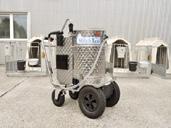

• Biosecurity
• Environmental Sustainability
More information on proAction’s six modules of quality assurance can be found at dairyfarmersofcanada.ca/proAction
the development of the first Canadian Quality Milk (CQM) program. Launching in 1997, this industry-led, on-farm food safety program was recognized by the Canadian Food Inspection Agency and helped to address the changing expectations from both consumers and government.
Over the next 15 years, participation in the CQM program helped Canadian dairy farmers reassure and validate that they are leaders in quality and food safety at all levels of production. It also helped build trust among consumers that Canadian milk is produced under some of the most stringent standards in the world.

Further, by being proactive, dairy farmers ensured they would have a voice in the development of the on-farm quality assurance program that would soon follow.
Interest in our standards would soon expand to other aspects of dairy production including care of the land, stewardship of our natural resources, and treatment of our animals.
In 2012, the CQM program evolved into proAction, with six modules of quality assurance covering the full spectrum of dairy production. The six modules were phased in over the last decade to allow farmers time to adapt.
All 10,000 dairy farms from coast-to-coast follow the program’s
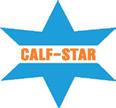
BRITISH COLUMBIA
Mountain View Electric Ltd.
Enderby — 250 838-6455
Pacific Dairy Centre Ltd.
Chilliwack — 604 852-9020
ALBERTA
D. H. & P. Supplies & Equipement Ltd.
Lacombe Country — 403 782-6473
Dairy Lane Systems
Leduc — 780 986-5600
Nobleford – 587-335-9742
Lethbridge Dairy Mart Ltd.
Lethbridge — 888 329-6202
If you are transporting manure more than 6 km, it’s time to consider a safe and economical solution.
SASKATCHEWAN
Dairy Lane Systems
Warman — 306 242-5850
Emerald Park — 306 721-6844
MANITOBA / NW ONTARIO
Penner Farm Services Ltd.
Blumenort — 204 326-3781
Thunder Bay ON – 800 461-9333
Tytech
Grande Pointe — 204 770-4898
ONTARIO
Claire Snoddon Farm Machinery
Sunderland — 705 357-3579
Conestogo Agri Systems Inc.
Drayton — 519 638-3022
1 800 461-3022
The GEA Manure Semi-Tanker is a road ready solution to save time and reduce hours on your tractor.
• Field tested reservoir proven to be manure ready.
• Partnered with a galvanized undercarriage from one of the largest trailer manufacturers in North-America.
County Automation
Ameliasburg — 613 962-7474
Dairy Lane Systems
Komoka — 519 666-1404
Keith Siemon Farm Systems Ltd.
Walton — 519 345-2734
Lamers Silos Ltd.
Ingersoll — 519 485-4578
Lawrence’s Dairy Supply Inc.
Moose Creek — 613 538-2559
McCann Farm Automation Ltd.
Seeley’s Bay — 613 382-7411
Brockville — 613 926-2220
McLaren Systems
Cobden — 613 646-2062
Melbourne Farm Automation

Melbourne — 519 289-5256
Aylmer — 519 773-2740
Watford — 519-876-2420
Silver-Tech Systems Inc.
Dunnville — 905 981-2350
ATLANTIC PROVINCES
Atlantic Dairy Tech.
Charlottetown, PE — 902 368-1719
Mactaquac Farm Equip. Ltd.
Mactaquac, NB — 506 363-2340
Sheehy Enterprises Ltd.
Shubenacadie, NS — 902 758-2002
Sussex Farm Supplies
Sussex, NB — 506 433-1699
framework. This creates consistency across the country and offers further validation of the stringent standards represented by DFC’s Quality Milk logo.
In 2021, the last of the six modules – Environment – came into effect. The new module supports and aligns with the industry’s commitment to reach Net-Zero greenhouse gas emissions from on-farm dairy production by 2050, a commitment built upon the many decades of conservation efforts that our dairy farmers have already made.
ProAction’s Environment module provides clear benchmarks in areas like enhancing soil health, protecting biodiversity and reducing our carbon footprint, and works in tandem with the other five modules to offer transparency and confidence to consumers and partners in the dairy supply chain.
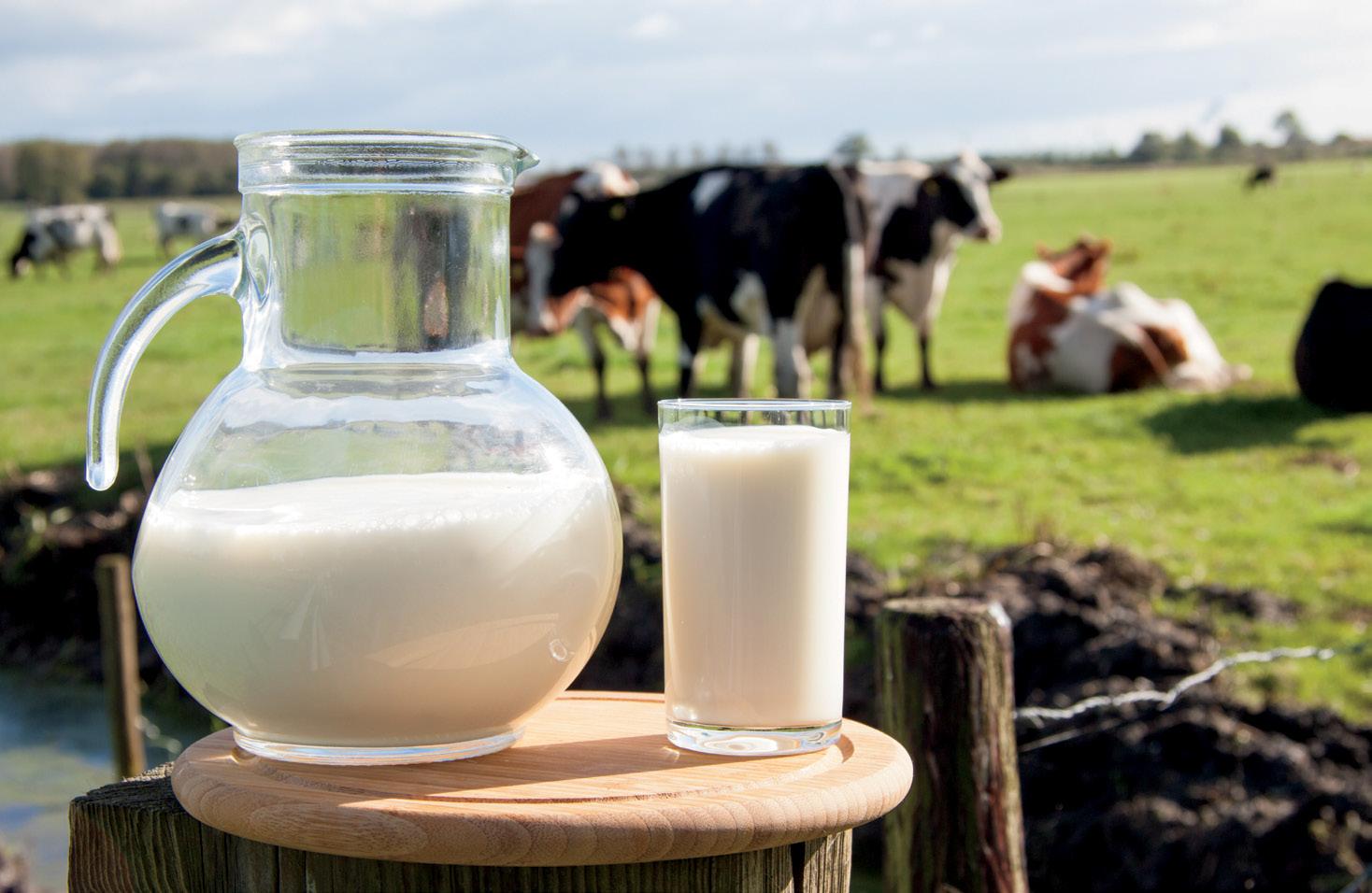
The program will continue to evolve to reflect the latest science and best practices, providing reassurance to consumers of the high standards of practice in the dairy farming sector. ProAction supports not only the values of our consumers but also those of dairy farmers who have always been, and will continue to be, committed to excellence.
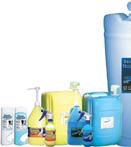
Dairy farmers are always looking forward and can be extremely proud of their efforts under CQM and proAction over the last quarter-century.
To download the full 2022 Progress Report, visit dairyfarmersofcanada.ca/en/proaction-progress-report





From Frosty to Footloose... Udder Comfort™ has been in the show box and cow care at home from the start at Duckett Holsteins, Rudolph, Wisconsin. “We do use a lot of it. Udder Comfort is great for fresh cows and keeping quality on cows while showing. Routine care is so important. We are fortunate to have some very talented people working for us,” says Mike Duckett, who served as one of the 2022 judges at The Royal.
“Frosty put us on the map. This time, with Footloose, the most special part is being able to have our two kids with us,” he says. The two cows are the only World Dairy Expo Supreme granddam and granddaughter.


Harvue Roy Frosty EX-97-3E-GMD did it in 2019 and 2010. Oak eld Solomon Footloose-ET EX-96 did it in 2022, owned by Duckett Holsteins, Vierra Dairy and Tim and Sharyn Abbott. Scan QR to
about them.

ProAction supports not only the values of our consumers but also those of dairy farmers who have always been, and will continue to be, committed to excellence.















A COMBINATION OF GENETICS AND CHANGES IN HERD MANAGEMENT have boosted production and milk quality at Farma Salas dairy farm in Marijanci, Croatia.

Through a strict set of breeding goals, the farm has achieved the status of top production herd in the country, awarded by Hapih, the Croatian Agency for Agriculture and Food.
Today, the herd is home to 450 cows and is concentrated on breeding for higher quality milk.
Farm manager Berislav Vulic, who is also a veterinarian, says the decision to start a dairy farm was a big one. Previously, the farm was focused on producing crops.
“Without any prior knowledge or experience, a milking parlour with a main barn was built and 330 Holstein Friesian pregnant heifers were imported from the Netherlands,” Vulic recalls of the dairy farm’s start. “Today, we have 450 cows plus an additional 450 heifers and calves as followers. On a number of occasions, we have surplus heifers to sell.”
The cows are milked twice per day, yielding 35 litres of milk each. The herd has progressed so well that last year it finished as the best farm in Croatia in terms of production, with 10,795 kg average milk yield at 4.6 per cent butterfat and 3.5 per cent protein.

These are notable gains because productivity per cow in Croatia is significantly below the EU average, according to a World Bank report.
The main milking herd is split into high and low production groups, and are housed separately to be fed different rations.

“The first lactation cows are always separated from the older cows,” Vulic says. “Each group has an external exercise area, and the dry cows and heifers have access to grazing areas, but due to the recent drought they have actually been receiving a full TMR ration.”
The farm employs 28 staff, including two vets. Cows are milked twice per day in a 12/24 Westfalia herringbone parlour.
With what he calls “sound advice” from his genetics supplier, Vulic follows a successful breeding strategy.

“We inseminate heifers and first-lactation cows with Holstein Friesian X-Vik sexed semen for the first two or three inseminations. On the older cows we use Belgian Blue semen,” he adds. “The goal is to achieve a balanced cow with the highest possible Nordic Total Merit index.”
The Croatian dairy sector was hit by the 2008 global economic crisis, the abolition of dairy quotas and Russia’s embargo on food imports from the EU. The dairy subsector and the milk market have yet to recover from these triple blows, says a report from the World Bank.
• A record-low 102,000 dairy cows as of December 2021 (Eurostat).
• Croatia’s self-sufficiency in dairy, beef and pork is relatively low and has been decreasing with competition from other EU countries.
• The number of dairy farms dropped more than 50% from 2007 to 2018.
• More than 70% of Croatia’s milk production is concentrated in three large dairy processing companies.
• Two breeds (Simmental and Holstein-Friesian) account for 85% of the total national herd .
• Per capita milk consumption has dropped 18% , with consumers shifting toward processed dairy products.
Source: The Croatian Livestock Sector in the Perspective of the New CAP, 2021-2027, The World Bank, February 2021
Source: Lactanet
The index includes all economically important traits (such as yield, growth and fertility) for the Nordic red breeds of dairy cattle, plus Holstein and Jersey in Denmark, Finland and Sweden. It is the most complete total merit index in the world with 90 different sub-indices combined into 15 main traits. The purpose is to develop the cattle’s genetic capital to achieve higher profitability and functionality of the herd by breeding new generations with higher milk production and resistance to disease, for example.
Like every other dairy farm in the world, Farma Salas is experiencing higher feed costs, which eats into profit margins.

The TMR for the cows consists of crops grown mainly on the farm. These include hay, straw, haylage, silage, triticale, corn, and toasted soybeans. Additional soybean meal is bought from other companies, along with sunflower meal, molasses, vitamins, and minerals.

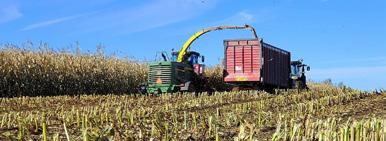
Ingredients are mixed together on the farm to make the concentrate, which is then
mixed with other feeds in the mixer wagon.
“Currently, the biggest problem on the farm is the price of feed,” Vulic says.




“We are trying hard to be more efficient when feeding to save costs. This is done by using ration formulation software for all the groups.
“In the future we would like to build our own beef fattening unit, but as far as the number of dairy cows is concerned, we will not expand any further.”
Since employing the genetics strategy and advice, Vulic says the herd’s milk composition has improved. Other herd management changes have also helped boost herd health.
“Since using genetics we have improved our butterfat composition during the last three years by 0.3 per cent. Of course, this can also be improved with progress in feeding and long-term selection of bulls that are positive for percentage fat in milk,” he adds.
The best Ontario herd averages a yield close to 15,000 kg of milk/cow/year.
Paul Mueller Company’s Milk Tower™ offers increased storage capacity. Avoid wasted product during inclement weather—when your hauler can’t complete a pickup—and reduce transportation and labor costs to operate more profitably.
BUCHANAN & HALL
Stratford, ON 519-271-4793
DAIRY LANE SYSTEMS


Komoka, ON 519-666-1404
DUNDAS AGRI SYSTEMS
Brinston, ON 613-652-4844
LAWRENCE’S DAIRY SUPPLY
Moose Creek, ON 613-538-2559
MCCANN FARM AUTOMATION
Seeleys Bay 613-382-7411
NORWELL DAIRY SYSTEMS
Drayton, Woodstock, Lindsay, Brinston 519-638-3535
PERFORMANCE DAIRY CENTRE
Embro, ON 519-423-9119
WOOD’S DAIRY SOURCE
Keene, ON 705-295-3247





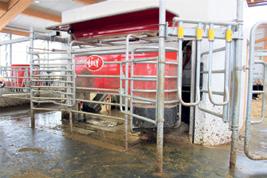
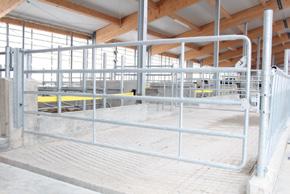
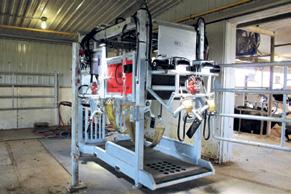






ENSURING MILK MEETS THE HIGHEST QUALITY STANDARDS, as well as the expectations of Ontario families is a group effort. It calls for proper hygiene and sanitation controls, and testing every step of the way.
Regulatory enforcement is an important element of any quality assurance program and in Ontario, Dairy Farmers of Ontario’s Field Services Representatives (FSRs) are an important part of the onfarm inspection process.
Scott Hartle, photographed just after joining DFO 25 years ago, sees the FSR’s role as a proactive resource for producers. “Through our farm visits, we not only help producers troubleshoot issues, we also educate them on best management practices they can use daily.” FSRs have a great deal of experience and knowledge they are always ready to share with producers, he adds. “Milk quality never improves after leaving the farm,” Hartle says. “Every shipment matters. Every shipment contributes to a quality product and it all starts on-farm.”

The HiFlo Evolution pulsator is the true evolution within BouMatic’s legacy. BouMatic’s first pulsator was born in 1939 through the hard work and dedication of Lawrence Bouma. What became the BouMatic milking principle of milking gently, quickly and completely was reflected then in the original design and continues today.
The HiFlo Evolution pulsator embodies the efficient simplicity and rugged reliability that Lawrence Bouma engineered into his first BouMatic pulsator in 1939.
The HiFlo Evolution will become the heartbeat of your dairy as it has become the heartbeat of BouMatic.

Request more information at BouMatic.com/HiFlo. It is in the best interest for the life of your dairy.
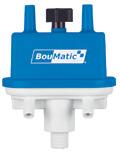



Contact
For the life of your dairy ™

Optimum Agri Belle Vallee
705-647-5040
Penner Farm Services Blumenort 800-461-9333 204-326-3781
Dundas Agri-Systems Brinston
613-652-4844
Ron’s Bearings Equipment Sales Lindsay 705-878-4515
Dortman Bros. Strathroy-Salford-Dunnville 800-265-3435
Partner Ag Services Tara 519-934-2343
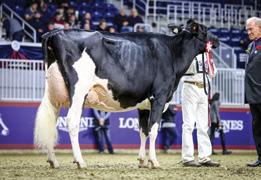
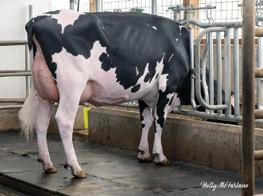

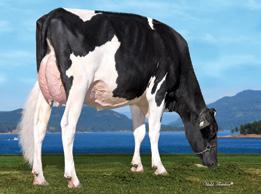
For more information please contact your local EastGen Rep!
